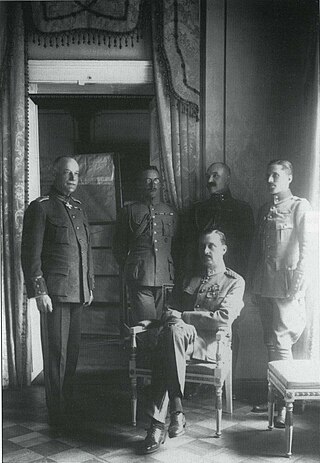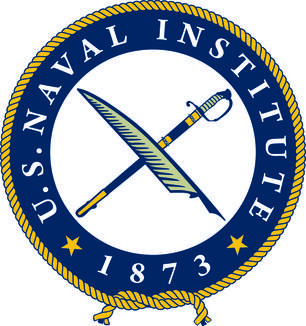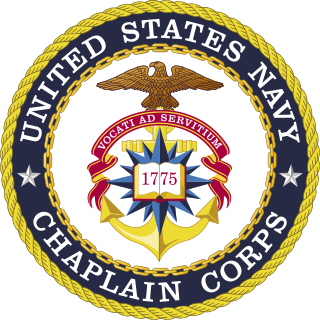Related Research Articles

Military police (MP) are law enforcement agencies connected with, or part of, the military of a state. In wartime operations, the military police may support the main fighting force with force protection, convoy security, screening, rear reconnaissance, logistic traffic management, counterinsurgency, and detainee handling.

In a military navy, a rate or rating, and sometimes known as a bluejacket in the United States, is a junior enlisted sailor who is below the military rank of warrant officer. They are not a commissioned officer. Depending on the country and navy that uses it, the exact term and the range of ranks that it refers to may vary.
First lieutenant is a commissioned officer military rank in many armed forces; in some forces, it is an appointment.
The Uniform Code of Military Justice (UCMJ) is the foundation of the system of military justice of the armed forces of the United States. The UCMJ was established by the United States Congress in accordance with their constitutional authority, per Article I Section 8 of the U.S. Constitution, which provides that "The Congress shall have Power. .. to make Rules for the Government and Regulation of the land and naval forces" of the United States.

Adjutant is a military appointment given to an officer who assists the commanding officer with unit administration, mostly the management of human resources in an army unit. The term adjudant is used in French-speaking armed forces as a non-commissioned officer rank similar to a staff sergeant or warrant officer but is not equivalent to the role or appointment of an adjutant.

The United States Department of the Navy (DON) is one of the three military departments within the Department of Defense of the United States of America. It was established by an Act of Congress on 30 April 1798, at the urging of Secretary of War James McHenry, to provide a government organizational structure to the United States Navy (USN); since 1834, it has exercised jurisdiction over the U.S. Marine Corps (USMC) and, during wartime, the U.S. Coast Guard (USCG), though each remains an independent service branch. It is led by the secretary of the Navy (SECNAV), a statutory civilian officer.

The United States Naval Institute (USNI) is a private non-profit military association that offers independent, nonpartisan forums for debate of national security issues. In addition to publishing magazines and books, the Naval Institute holds several annual conferences. The Naval Institute is based in Annapolis, Maryland.

The United States Navy Chaplain Corps is the body of military chaplains of the United States Navy who are commissioned naval officers. Their principal purpose is "to promote the spiritual, religious, moral, and personal well-being of the members of the Department of the Navy," which includes the Navy and the United States Marine Corps. Additionally, the Chaplain Corps provides chaplains to the United States Coast Guard.

Littleton Tazewell "Tony" Waller was a career officer in the United States Marine Corps, who served in the Spanish–American War, the Caribbean and Asia. He was court-martialed and acquitted for his actions during the Philippine–American War, when he led an ill-fated expedition across the island of Samar. Waller retired from the Marines holding the rank of major general.

The United States Navy Reserve (USNR), known as the United States Naval Reserve from 1915 to 2005, is the Reserve Component (RC) of the United States Navy. Members of the Navy Reserve, called Reservists, are categorized as being in either the Selected Reserve (SELRES), the Training and Administration of the Reserve (TAR), the Individual Ready Reserve (IRR), or the Retired Reserve.

A Marine Security Guard (MSG), also known as a Marine Embassy Guard, is a member of the Marine Corps Embassy Security Group, a brigade-sized organization of the United States Marine Corps (USMC) whose detachments provide security at American embassies, consulates, and other official U.S. government offices, such as the United States Mission to NATO in Brussels, Belgium.
An officer of the deck (OOD) underway is a watchstanding duty officer on a surface ship in the United States Navy, United States Coast Guard, and NOAA Commissioned Officer Corps who is tasked with certain duties and responsibilities for the ship. The officer of the deck is either subordinate to the command duty officer or, in the absence of one, reports directly to the ship's commanding officer and executive officer, in the latter case holding responsibility for the ship altogether. This article describes duties and responsibilities for an underway OOD for surface ships only.
Pay grades are used by the eight uniformed services of the United States to determine wages and benefits based on the corresponding military rank of a member of the services. While different ranks may be used among the eight uniformed services, pay grades are uniform and equivalent between the services and can be used to quickly determine seniority among a group of members from different services. They are also essential when determining a member's entitlements such as basic pay and allowances.

A guardhouse is a building used to house personnel and security equipment. Guardhouses have historically been dormitories for sentries or guards, and places where sentries not posted to sentry posts wait "on call", but are more recently staffed by a contracted security company. Some guardhouses also function as jails.
The structure of the United States Navy consists of four main bodies: the Office of the Secretary of the Navy, the Office of the Chief of Naval Operations, the operating forces, and the Shore Establishment.

The Bluejacket's Manual is the basic handbook for United States Navy personnel. First issued in 1902 to teach recruits about naval procedures and life and offer a reference for active sailors, it has become the "bible" for Navy personnel, providing information about a wide range of Navy topics. The current edition is the 26th, published in 2023.

The United States Navy occupational rating of boatswain's mate is a designation given by the Bureau of Naval Personnel (BUPERS) to enlisted members who were rated or "striking" for the rating as a deck seaman. The colloquial form of address for a boatswain's mate is "Boats".
The U.S. Army Creed of the Noncommissioned Officer, otherwise known as the Noncommissioned Officer's Creed, and commonly shortened to the NCO creed, is a tool used in the United States Army to educate and remind enlisted leaders of their responsibilities and authority, and serves as a code of conduct. Each branch has their own version, and many have been altered over the years.
The Judge Advocate General's Corps, also known as JAG or JAG Corps, is the military justice branch or specialty of the United States Air Force, Army, Coast Guard, Marine Corps, and Navy. Officers serving in the JAG Corps are typically called judge advocates.
References
- ↑ Thomas J. Cutler (1902–2002). The Bluejacket's Manual. US Naval Institute Press. p. 153. ISBN 1-55750-208-0., The Bluejacket's Manual, Thomas J. Cutler
- ↑ Marine Corps Order 5530.15: U.S. Marine Corps Interior Guard Manual, Chapter 3: Orders and Countersigns, 2. General Orders and Regulations http://www.marines.mil/Portals/59/Publications/MCO%205530.15.pdf. Retrieved 14 December 2016.
- ↑ "RESPONSIBILITIES OF THE INTERIOR GUARD B141136 STUDENT HANDOUT" (PDF). CAMP BARRETT, VIRGINIA: MARINE CORPS TRAINING COMMAND. Retrieved 2022-10-09.
- ↑ Rottman, Gordon (2010). "Daily Life". US Combat Engineer 1941–45. Osprey Publishing. p. 23. ISBN 978-1-84603-579-1.
All soldiers were required to memorize and be able to accurately repeat the 11 General Orders for sentries.